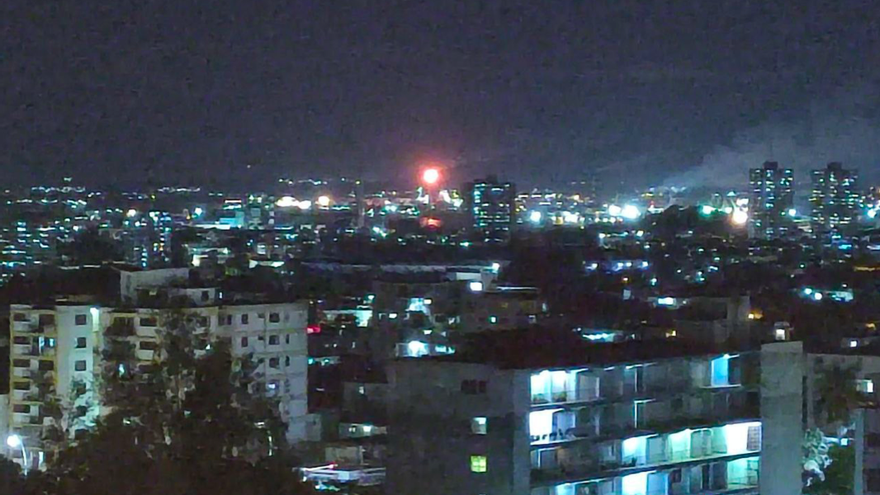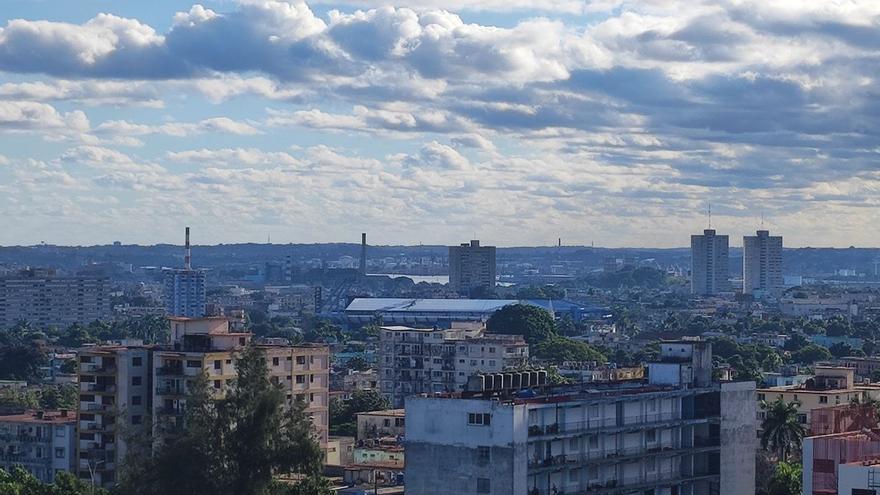
![]() 14ymedio, Havana, October 21, 2023 — The intense flames that came out, on Friday night, from the tower of the Ñico López refinery on Havana Bay, gave the impression that fuel production had been restarted. The joy of the thousands of Cubans in line at gas station was short-lived: in the early hours of this Saturday, the plant’s torch went out again.
14ymedio, Havana, October 21, 2023 — The intense flames that came out, on Friday night, from the tower of the Ñico López refinery on Havana Bay, gave the impression that fuel production had been restarted. The joy of the thousands of Cubans in line at gas station was short-lived: in the early hours of this Saturday, the plant’s torch went out again.
From the Newsroom of 14ymedio, on Friday evening, a flame that was more powerful than usual could be seen in the Ñico López refinery, which suggested that the facilities were processing the crude oil that arrived in several tankers from Mexico and Venezuela. A short distance from the refinery, the Emilia LPG, which was built to transport liquefied gas, remained anchored.
Another sign that a supply of fuel arrived in Havana in recent days is the smoke, more intense since Friday, emitted by the chimneys of the patana, the floating power plant contracted from the Turkish company Karpowership. Habaneros have become resigned to the harmful column of smoke emitted from the patana, because it means that the blackouts will have a truce. The environmental impact of the activity of those floating plants, however, will affect the Bay’s ecosystem, as several forecasts have already warned.
It would be logical that, although intermittent, the refining of crude oil in the Ñico López alleviates, even temporarily, the shortage of fuel in the capital’s gas stations
It would be logical that, although intermittent, the refining of crude oil in the Ñico López alleviates, even temporarily, the shortage of fuel in the capital’s gas stations. Just one day ago, the crisis showed signs of having reached a stalemate: the closure of important cultural institutions “for energy savings,” the streets without a single car and the bus stops full of people, waiting for a bus that does not arrive or passes by full.
University of Texas specialist Jorge Piñón told this newspaper that the Havana plant should be processing at least 22,000 barrels of crude oil per day, an amount that – judging by the number of oil tankers in the Island’s ports – would not be impossible to meet under the current conditions. However, last Thursday, as a 14ymedio reporter noted, the refinery torch was turned off.
At the beginning of September, Ñico López processed crude oil again, after a year of non-functioning. The start was disastrous: an unbearable smell of gas emitted by the facilities was denounced by thousands of habaneros on their social networks. The complaints forced the authorities to give an explanation, and the state-owned Cuba-Petróleo (Cupet) had to admit that the plague emanated from the refinery.
“The operation of the refinery, together with the calm air that has existed in recent days (especially at dawn and in the morning hours), has caused the gases, the product of the combustion in the torch, to generate the odors detected in some neighborhoods of Havana,” the company said.
The failure was unjustified, since Cupet had assured that its technicians “reviewed the handling systems of non-condensable waste gases, verifying that they were directed to the torch or flare for their burning, which is the technological destination that should receive them”
However, the promise to “minimize these unpleasant effects” did not satisfy habaneros, who continued to publish complaints about the impossibility of stopping the bad smell, even after closing doors and windows.

At the moment, Cupet has not commented on the productive intermittency of Ñico López, although Havana’s energy allies, such as Mexican President Andrés Manuel López Obrador, have stated that they will continue to help the Island “with everything possible,” including oil shipments.
Meanwhile, the speech of Cuban president Miguel Díaz-Canel continues to be that of someone under siege. In a long interview broadcast on Televisión Cubana, he said that the country lacks foreign currency and uses the little money it has to buy “a little” amount of fuel. Regarding transport – the sector with the largest impact – he said that the companies were “almost bankrupt.” Of course, despite the continuous arrival of oil tankers, which the Government doesn’t acknowledge, Cuba is experiencing, in the president’s opinion, a fierce “energy persecution” with the “evil objective” of depriving the country of fuel.
Translated by Regina Anavy
__________________________
COLLABORATE WITH OUR WORK: The 14ymedio team is committed to practicing serious journalism that reflects Cuba’s reality in all its depth. Thank you for joining us on this long journey. We invite you to continue supporting us by becoming a member of 14ymedio now. Together we can continue transforming journalism in Cuba.
